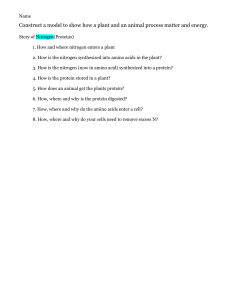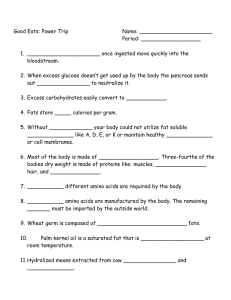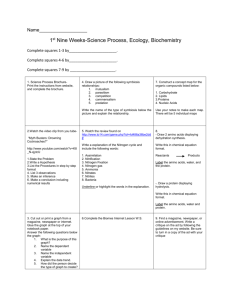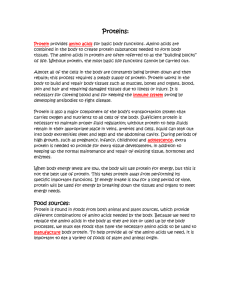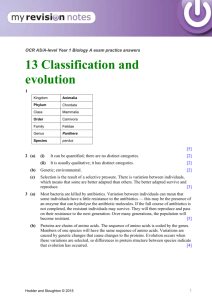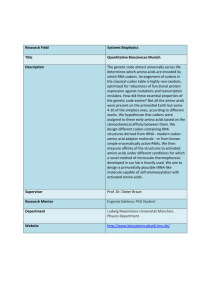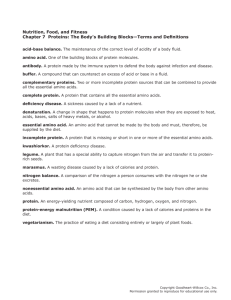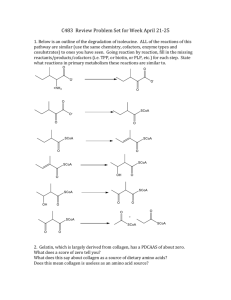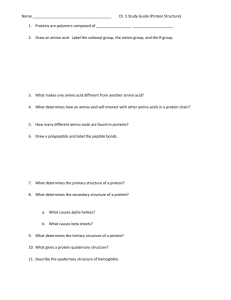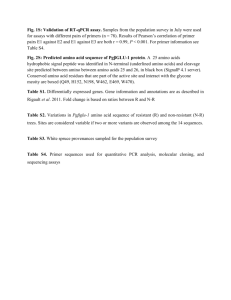Quiz 6a
advertisement
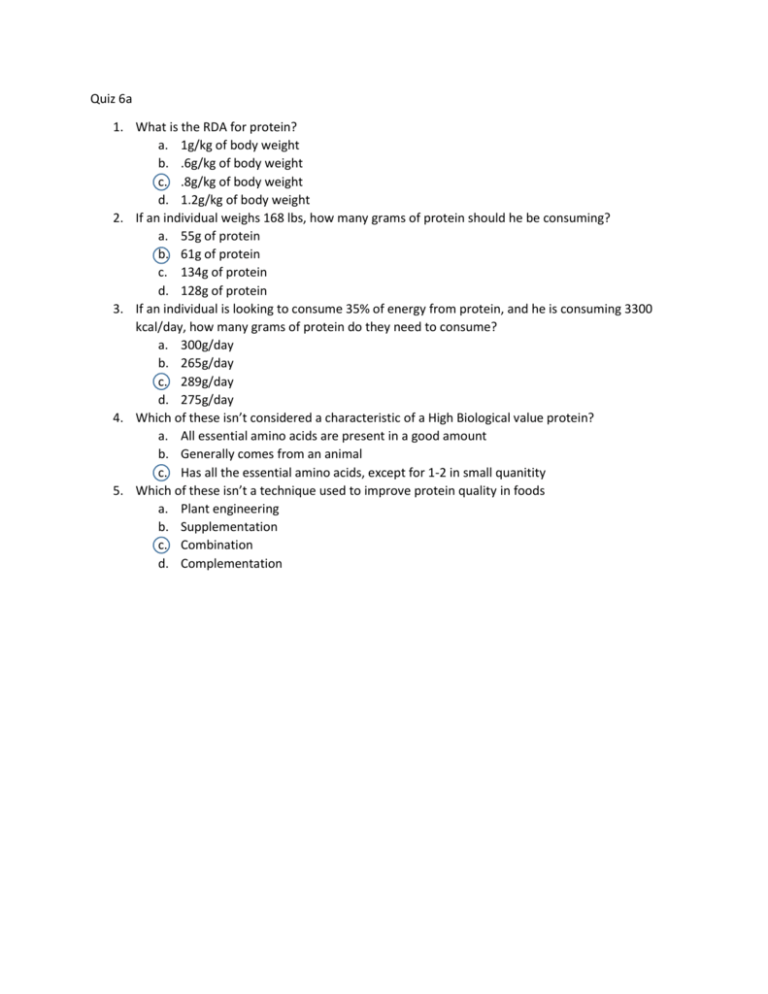
Quiz 6a 1. What is the RDA for protein? a. 1g/kg of body weight b. .6g/kg of body weight c. .8g/kg of body weight d. 1.2g/kg of body weight 2. If an individual weighs 168 lbs, how many grams of protein should he be consuming? a. 55g of protein b. 61g of protein c. 134g of protein d. 128g of protein 3. If an individual is looking to consume 35% of energy from protein, and he is consuming 3300 kcal/day, how many grams of protein do they need to consume? a. 300g/day b. 265g/day c. 289g/day d. 275g/day 4. Which of these isn’t considered a characteristic of a High Biological value protein? a. All essential amino acids are present in a good amount b. Generally comes from an animal c. Has all the essential amino acids, except for 1-2 in small quanitity 5. Which of these isn’t a technique used to improve protein quality in foods a. Plant engineering b. Supplementation c. Combination d. Complementation 1. Explain nitrogen balance. Who is likely to be in negative, zero, or positive nitrogen balance. Can an individual force his/her body into positive nitrogen balance by eating extra protein rich foods or taking amino acid supplements? Explain. 2. What determines the quality of a protein? Define limiting amino acid. If you eat only one protein food for two weeks and it had a non-essential amino acids missing, what would happen? If you eat only one protein for two weeks and it had one essential amino acids missing, what would happen? 3. Identify two foods with high quality (complete) protein and two foods with low quality (in-complete) protein. Would the protein in cheese and eggs be considered high quality (complete) proteins? (Do not confuse the issue of the amount of fat and cholesterol in foods when answering this question.)
